#Lobenstein
Explore tagged Tumblr posts
Text
Lobenstein
Barge Lobenstein adrift on Elbe, recovered #Geesthacht #inland #vandalism
Photo: abendblatt.de On the early morning of November 9, the 70 meter long self-propelled barge Lobenstein (MMSI: 211497070) went adrift on the Elbe River off Geesthacht, Germany. Authorities at the Geesthacht lock spotted the Lobenstein adrift and unmanned. An investigation found the Lobenstein had been intentionally been untied from its berth by unknown persons. The same persons concealed their…

View On WordPress
2 notes
·
View notes
Text

Bad Lobenstein, Thuringia.
85 notes
·
View notes
Text
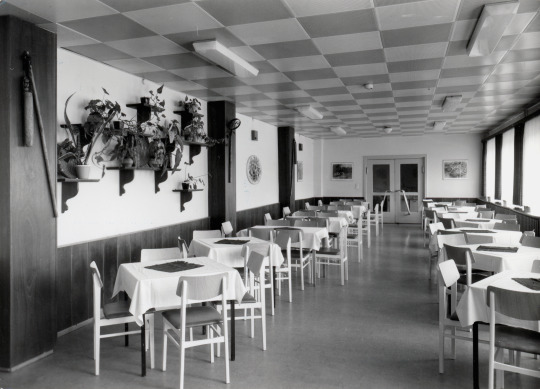
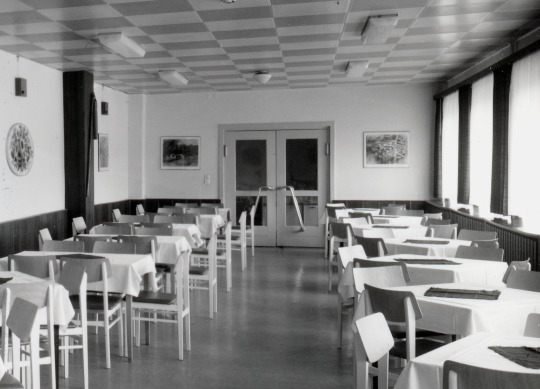
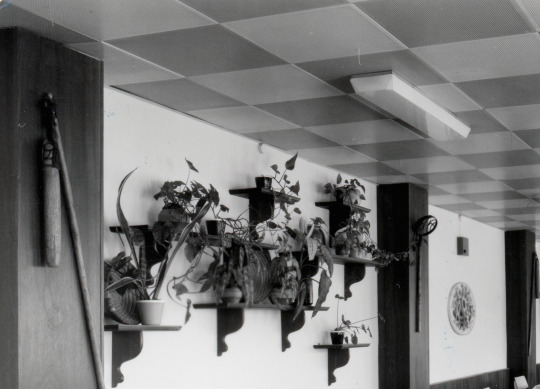
Ansichtskarte
Betriebsferienheim des VEB NARVA Berlin 6851 Lückenmühle
Lobenstein: Verlag Photo-König, 6850 Lobenstein (V 5 33 5236 M 2/81)
1981
#Lückenmühle#Philokartie#DDRPhilokartie#FerienkulturDerDDR#Ansichtskartenfotografie#InnenarchitekturDerDDR#AnsichtskartenfotografieDerDDR#deltiology#VintagePostcard#DDRDesign#Bezirk Gera#1980er#1981#Ferienheim#Betriebsferienheim#Innenaufnahme#Verlag Photo König#Photo König
3 notes
·
View notes
Photo


😃😃😃😃😃😃😃😃😃😃😃😃😃😃😃😃😃😃
#deutschland#germany#thuringen#thuringia#bad lobenstein#obere saale#thüringer schiefergebirge#bergmuseum#bergerlebnis#markt-höhler#markt höhler#ardesia therme#felsenkeller#bierfelsenkeller#höhler#bier#bierhöhler#lobensteiner stadtfelsenkeller
5 notes
·
View notes
Photo

Lobensteiner Strasse Erfurt Nord- früher Morgen
2 notes
·
View notes
Video
vimeo
Audi "Wind”
Agency: Aimaq von Lobenstein / Saint Elmo’s Berlin Managing Partner: Hubertus von Lobenstein Chief Creative Officer: André Aimaq
Production: Czar Berlin Director: Joe Vanhoutteghem Cinematographer: Sebastian Blenkov Executive Producer: Jan Fincke, Brox Brochot Production Design: Bader el Hindi Editor: Piet Schmelz, Manu van Hove Colorist: Julien Alary
Post: Nozon Brussels
Year: 2017
#audi#automotive#nature#vfx#aimaq von lobenstein#saint elmos#berlin#germany#czar#joe vanhoutteghem#sebastian blenkov#jan fincke#brox brochot#bader el hindi#manu van hove#piet schmelz#julien alary#nozon#brussels#2017
1 note
·
View note
Text
Flake von Rammstein, früher Feeling B im interview - 2019
Author Lars Schmidt, from
English translation
The other bands of the GDR: Feeling B
"We showed that you could have a lot of fun in the GDR"
From the mid-80s onwards, a whole bunch of young, non-conformist bands embodied the lifestyle of the GDR youth with their music and thus shaped the sound of the change. Also there: Feeling B. Keyboard player Flake, now with Rammstein, tells how diligent his music used to be, what went on at village concerts and how he experienced the fall of the Berlin Wall.
Today, Feeling B is often portrayed as the GDR punk band - also due to the connection to Rammstein. Is that justified?
Feeling B wasn't actually a punk band. We didn't really fit in anywhere. The punks didn't accept us because we basically didn't make punk music. Because we weren't edgy enough from our whole life and appearance. And the right rock bands didn't take us seriously either because we were so amateurish, couldn't play properly and deliberately cultivated and maintained our amateurism. At that time we weren't a serious band for anyone. It was very difficult to place us anywhere. Because we were all just too bad. We were an amateur band. But if you say punk is, if you don't give a shit, if you don't care about the rules and only do what you want, then we were a punk band. But less about the music. The fact that we are perceived as a GDR punk band today is only due to the fact that we were the only one of these bands who managed to bring out an LP with Amiga in GDR times.
How did you experience the GDR underground scene?
As a teenager at 16 or 17, I mainly noticed blues bands in the GDR. There was Freygang. And their singer André Greiner-Pol was punk at heart. Basically he played punk in a blues band, had a punky demeanor and some of the lyrics were already punk. Later we played our first concert as Feeling B with Freygang. They just took us with them and let us play in the break between their blocks. Even though we didn't have a permit back then. And nobody noticed. I noticed the first punk band in the east in 1983. It was called Rosa Extra. This was also the name of sanitary towels in the GDR. Shortly afterwards, there was an anti-riot and revolt to love. None of them had a state classification, so they weren't allowed to play. They were real punk bands and therefore they had nothing to do with the so-called "other bands". The so-called other bands were groups that had received a classification and thereby a state recognition. And besides punk, they were also influenced by other genres, for example ska or new wave.
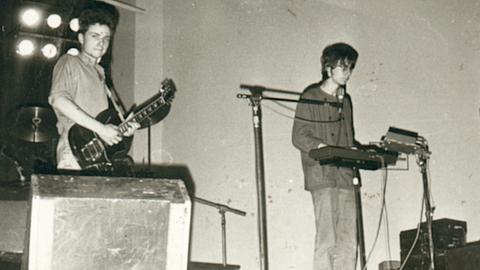
(photo from Flake's private collection)
Did the scene only take place in the big cities or was punk going on in the provinces too?
Our main area of activity was in the village. In Ebersbrunn, Lugau, Saalfeld, Lobenstein. In places that you only really know because there is a village hall. Where the promoter just bought the bands that people wanted to hear. And not the bands that were prescribed for him by the state. Things happened there that nobody knew anything about and nobody suspected anything. Forbidden bands played there by only changing their names. Bands played programs that were absolutely forbidden and people came and nobody noticed. The small villages could not be monitored so well and the Stasi could not see them. Berlin, on the other hand, was the capital of the GDR. If there are 20 punks banding together or 40 goths or 60 heavy metal fans, of course, the police will come and see what is going on and be suspicious. The youth clubs in Berlin were of course much more closely monitored. It was different in the village. Who goes to Lugau and looks at which band is playing? That was too strenuous for the state authorities.
Can one say that Feeling B were privileged because your singer Aljoscha Rompa was allowed to travel to the West?
Yes, because it enabled Aljoscha to get me a Casio keyboard. Such a small Casio toy instrument. That was my main musical instrument. Nowadays every musician would laugh to himself about it. That was really a 200 Mark West item from the toy store. But otherwise nobody in the East was interested in the fact that Aljoscha was allowed over. On the contrary. Rather, a hostile defensive stance built up.
What significance did the program "Parocktikum" have for the scene?
Lutz Schramm, the moderator, was the John Peel of the East. He was the first to play cassettes from Eastern bands on the radio. You can't credit him enough for that!
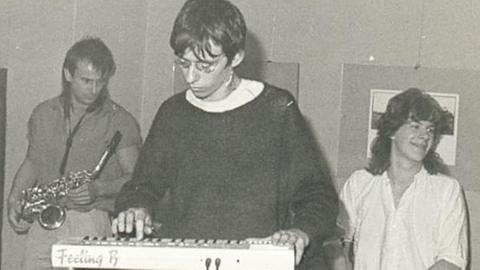
(photo from Flake's private collection)
How did you experience the fall of the wall?
We were in the crazy position that we were allowed to drive with Feeling B to West Berlin and West Germany shortly before the fall of the Berlin Wall. We suspected that the state wanted to show the West how cool we still are in the East and that we are opening up. It had already brought Western stars like Bruce Springsteen to the East. And we had been sent to the west. But we had a Stasi employee who pretended to be our manager. And he told us you can stay here too. That was a very clear offer that we should stay in the West. And we assume that was why we were allowed over there, to get us to disappear from the East. But that's how it came to be that we played in West Berlin on the evening the Berlin Wall came down. And suddenly a lot of friends come in while we're playing. A few had already fled via Hungary and the green border. And many of our acquaintances have already gone to the West. But that evening there was more. So I asked: "What's going on here. What are you doing here? Have you all left now?" They said: "No, the wall is open." I say: "Can't be true." Then we took our whole fee and got beer for everyone we knew. For us it was an incredible honor. When the wall goes up and everyone can leave the GDR for the first time - what do they do first? They go to the Feeling B concert. There is no better way to express sympathy. That touched me very much. That made it a great evening for us, of course.
How was the time after the fall of the Berlin Wall for Feeling B? Did your counterpart disappear with the end of the GDR?
We didn't sing directly against the GDR. We sang against certain things that were mostly due to the narrow-mindedness and madness of the people. And we had already seen on our first visits that in the West of course nothing is even a bit better. Rather everything is much worse. Aljoscha had already warned us in Eastern times: "If you think all the philistines are here, go west." In the GDR, we felt very comfortable as punks. After that it got worse bit by bit. But when I say that things got wrong during the reunification, that's no complaint. This law-free space after the fall of the Wall was very funny for a while. You could do anything and nobody knew it was allowed. Is it allowed or not? That was a very eventful time and I always got to bed late, to put it that way.
How much GDR is there in Rammstein?
Very very much. Since we were all socialized in the GDR, we think much less selfishly. Nobody tries to stand out. We don't quarrel. What counts for us is what the collective creates.
How do you rate the importance of Feeling B today?
We showed that you could very well have an unlikely lot of fun in the GDR. We made very light and relaxed music. And with that we brought in a little freshness. We also saw the funny side of every situation, were happy about it and made fun of it. We wanted to shape our whole life in such a way that we never scold but always laugh. So far we have largely succeeded. And we showed people that you don't have to play an instrument to make music. But that was more in the spirit of punk than time.
What do you particularly like to remember?
At some concerts I just had a feeling of joy. And the people were also happy, it was like a fair. An event outside of space and time. At a Feeling B concert, everything was allowed and everything was fun. The party went on into the night and there was no difference between the band and the fans. It was all a mass of young people who had a lot of fun in life and could also enjoy it.
#we don't quarrel#flake interview#that's a first 😁#love the pics from flake's collection#feeling b era#pre rammstein#flake's book#rammstein
64 notes
·
View notes
Text
Finding and Preserving Native History in the Archives
In her myriad work on Native Americans in the state of Wisconsin, Dr. Patty Loew warns against extractive research practices. These extractive practices made up, and to some extent still make up, the bulk of anthropological and sociological studies of Native Americans. In this traditional methodology, scholars would enter Native communities as observers, asking questions devised without the input of their subjects. After gathering their data, they would synthesize it into a book or dissertation. Either through book royalties or the receipt of tenure, the information gleaned from Native communities would provide a financial reward for the researcher without the Native community receiving anything in return. According to Loew, this methodology is both unsustainable and irresponsible.
Loew has proposed a solution. She suggests that Native populations should be as involved in the research process as possible. Their voices should be amplified on their own terms and scholars and researchers should reinvest time and resources back into the communities they study.
The work is personal for Loew. She is a member of the Bad River Band of Lake Superior Ojibwe and she is heavily involved in the academic community, working as a professor in the Medill School of Journalism at Northwestern University. She formerly served as a professor in Department of Life Sciences Communication at UW- Madison. While teaching, she turned her theory into praxis by engaging non-Native UW students with tribal youth on the Bad River Ojibwe Reservation. Her workshops and classes simultaneously allowed tribal youth outside the University to tell their own stories and non-Native UW students to engage responsibly with Native history in Wisconsin. Loew’s work has produced great results and many scholars are now embracing this methodology leading to more accurate, sensitive work on the Native communities in this country.
Archives often serve as the basis for scholarly research. How the collections within are cataloged and and organized has the potential to steer the course of scholarship. What, then, does this call for a new approach mean for archives? How can university archives be responsible conservationists of the histories of the various communities on campus? Can archives give back to undeserved populations on campus and in the community?
This post is the first in a continuing series where we will explore the archive’s collection on Native Americans and consider how we, as an archive, can do better in preserving this history.
---
This post was originally drafted by former Archives Student Assistant Emily Lobenstein and updated by former Archives Student Assistant Dani Fulwiler.
18 notes
·
View notes
Text

augusta reuss as artemisia, duchess of saxe-coburg-saalfeld and countess of ebersdorf and lobenstein
johann heinrich tischbein, 1775
#art#europe#aesthetic#fashion#mythology#painting#art history#christianity#history#monarchy#women in art#1700s art#18th century#germany#austria#holy roman empire#portrait#allegorical painting#allegory#allegorical art
72 notes
·
View notes
Text





Ansichtskarte
HO "Central-Hotel" 99 Plauen Bahnhofstraße 54, Ruf 2 21 18 Erstes Haus am Platze Gepflegte Speisegaststätte
Lobenstein: Verlag B. König 685 Lobenstein. (M 2 79 V 5 33 5183).
1979
#Plauen#Bezirk Karl Marx Stadt#1970er#1979#Verlag B König#Hotel#HO Hotel#Philokartie#DDRPhilokartie#Archigrafie#SocialistHotels#AlltagskulturDerDDR#HotelCentral#akPlauen#BezirkKarlMarxStadt#Ansichtskartenfotografie#HOHotel#AnsichtskartenfotografieDerDDR#VintagePostcard#deltiology#Vogtland#Nachtaufnahme
11 notes
·
View notes
Video
youtube
Dieselzüge auf der Oberlandbahn Triptis - Lobenstein 1998
7 notes
·
View notes
Link
0 notes
Photo

A Eurofighter travels on the Autobahn 9 near Bad Lobenstein, Germany to get repaired after it got damaged in a collision with a Learjet during a maneuver in June 2014.
204 notes
·
View notes
Text
Käte, Königsee, 21st November, 1940
Dear big one,
My sincere thanks for your lovely letter, the newspaper clippings and last but not least for the chocolates, for which our fat one, of course, always has an eye. We were very happy that our big one wrote to us in detail.
I sincerely regret that you were sick; but there’s nothing to be done. I would like to see our big one with glasses! I’m laughing at the mere idea. Whether you look like a professor or, as dad always says, like a "bread eater"? Now I hope that you take a little more care and do not have to watch the bed again!
Now I want to tell about myself, because you're so strangely curious that one can't resist answering your question. Until last Friday everything went fine in our kindergarten. But on that day, our director Ms. Wolf kept cutting me off for no reason, so I told my papa about it. He complained to Frau Wolf and one word led to another. Dad said he said he wanted to go to Rudolstadt and take me to another kindergarten where there was a certified leader. To which she replied in her anger, "You can take your daughter with you!" And so, it happened that I have been at home since Friday until the district manager Hermann has another job for me. Overall, I was very happy with my job. The greatest reward comes when the children hang on you like that. At least you know that you have achieved something. Even now when the children see me on the street they run away from the mother’s hand and towards me. Cries and shouts "Aunt Kate" come from every corner! Even in Rudolstadt at the train station a little boy called out to me. You can believe me that I don't want anything more than being back in a Kindergarten soon. My working hours were from 8 a.m. until 7.30 in the evening. We were 3 helpers, 1 nanny from Saxony & Mrs. Wolf. About 14 days ago we got a certified one from Lobenstein, but she had no control.
So now I have probably answered all of your questions and now I want to slowly come to a close. I bought our mum a blanket on which I still have to embroider, so it can be ready by Christmas. It’s a pretty cross-stitch rose pattern, in the colours dark red, red, 3 x pink, yellow, green & brown. Mama mustn't see it before Christmas and I always go over to Waltraud Fichte in the evening. Mum keeps scolding me a little when I go away; but she thinks we're moving around.
Now I want to close and will soon hear something from you again. What about Christmas vacation? Unfortunately, you have not yet complied with my urgent request and told me what you want. I would have liked to make you happy! So, let me know immediately, ok?
Warm kisses and greetings,
From your Karl
Text written in the margins:
The teacher Enders married Hilde Lettermann on Saturday. Judge wedding. A few days before, Lieselotte Gunkel also married a musician from out of town.
Greetings from Papa & Mama and Hannchen. Papa is writing the next one himself. Many greetings to Elvira & family & to Mrs. Hillger.
A picture of the following of the kindergarten is included. This is in the former shoe factory in Lange (at the petrol station)



(Keep reading for German text and envelope)
Liebe Große,
Meinen herzlichsten Dank für deinen lieben Brief, die Zeitungsausschnitte und nicht zuletzt für die Pralinen, auf die unsere Dicke natürlich wie immer, gleich ein Auge hat. Wir haben uns sehr gefreut, daß unsere Große mal ausführlich geschrieben hat.
Daß du krank warst, tut mir aufrichtig leid; aber daran ist ja nun nichts mehr zu ändern. Unsere Große möchte ich mal mit Brille sehen! Bei der bloßen Vorstellung muß ich schon lachen. Ob du aussiehst wie ein Professor oder, wie Papa immer sagt, wie ein "Brotfresser"? Nun hoffe ich, daß du dich bißchen mehr schonst und nicht gleich wieder das Bett hüten mußt!
Jetzt will ich mal von mir erzählen; denn dir fragst so komisch neugierig an, daß man garnicht wiederstehen kann dir auch diese Frage zu beantworten. Bis vorigen Freitag ging alles in Ordnung in unseren Kindergarten. Aber am genannten Tage kanzelte mich andauernd unsere Leiterin Frau Wolf ohne jeden Grund ab, dass ich diesen Vorfall meinem Papa erzählte. Dieser beschwerte sich bei Frau Wolf und ein Wort gab das andere. Papa sagte er sagt er wollte nach Rudolstadt fahren und mich in einen anderen Kindergarten nehmen, wo eine geprüfte Leiterin wäre. Darauf antwortete sie in ihren Zorn "da können Sie ihre Tochter mitnehmen!" So kam es, dass ich nun seit Freitag zu Hause bin, bis der Kreisleiter Hermann eine andere Stelle für mich hat. Im großen Ganzen war ich mit meiner Stelle sehr zufrieden. Der schönste Dank war es, wenn die Kinder so am einem hängen. Da weiß man wenigstens, dass man etwas erreicht hat. Auch jetzt, wenn mich die Kinder auf der Straße sehen rennen sie von der Mütter Hand weg und auf mich zu. Aus allen Ecken schreit und ruft es "Tante Käte"! Sogar in Rudolstadt auf dem Bahnhof ruft mich ein kleiner Junge. Du kannst mir glauben, daß ich mir nichts seligeres wunchse, als bald wieder in einem Kindergarten tätig zu sein. Meine Arbeitszeit war von früh 8 Uhr, bis abends 1/2 7 Uhr festgelegt. Wir waren 3 Helferinnen, 1 Kinderpflegerin aus Sachsen & Frau Wolf. Vor ca. 14 Tagen bekommen wir noch eine geprüfte aus Lobenstein, die aber keine Leitung hat.
So, nun hatte ich wohl alle deine Fragen beantwortet und will nun langsam zum Schließ kommen. Unserer Mutti habe ich eine Decke gekauft am die ich noch faste sticken muß; denn sie soll doch bis Weihnachten fertig sein. Es ist ein hübsches Rosenmuster in Kreuzstich. In den Farben: dunkelrot, rot, 3 x rosa, gelb, grün & braun. Mutti darf es vor Weihnachten noch nicht sehen und da gehe ich abends immer rüber zur Waltraud Fichte. Mutti schimpft ja immer bißchen, wenn ich weggehe; aber sie denkt wir ziehen rum.
Nun will ich aber schließen und laß bald mal wieder was von dir hören. Wie ist es mit Weihnachtsurlaub? Meine dringlichen Bitte bist du leider noch nicht nachgekommen und hast mir mitgeteilt was du dir wünschst. Hätte dir doch gern eine Freude gemacht! Also, sofort nachholen, gelt?
Sei herzlichst geküßt & gegrüßt
von deinem Karl
Am Sonnabend hatte Lehrer Enders mit Hilde Lettermann verheiratet. Richter Hochzeit. Ein paar Tage vorher hatte auch Lieselotte Gunkel mit einem auswärtigen Musiker Hochzeit.
Viele Grüße von Papa & Mutti sowie Hannchen. Papa schreibt dennächste selbst. Viele Grüße an Elvira & Familie & an Frau Hillger.
Ein Bild von der Gefolgschaft des Kindergartens liegt bei. Dieser befindet sich in der frühere Schuhfabrik Lange (bei Tankstelle)


#Käte Barucker#christmas#Author: Käte Barucker#Location: Königssee#Frau Wolf#Lieselotte Gunkel#Hilde Lettermann#Waltraud Fichte#Kindergarten#Elvira#Frau Hillger#1940#November 1940
1 note
·
View note

